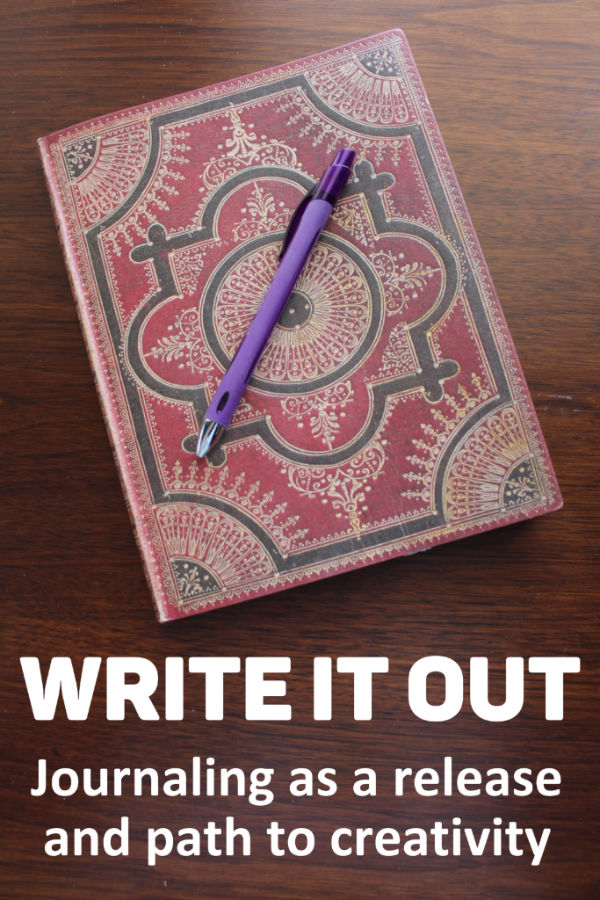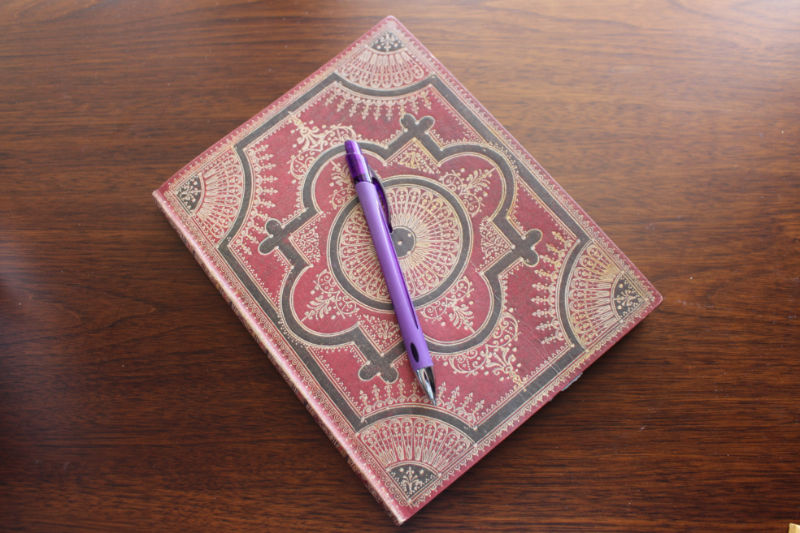Do you keep a journal? In spite of being only a sporadic journal keeper, I am aware of the power of writing it down to help sort out feelings, relieve anxiety, spark ideas, and be a record for when memory fails.
In a writing class I took many years ago, the instructor had the class spend fifteen minutes near the beginning of the class writing about something from their day or something on their mind. We didn’t share what we wrote or do any further work on it. It was simply an exercise to clear our minds before getting into the meat of the class.
One needn’t be preparing for writing or another creative pursuit to benefit from journaling. I was reminded of that recently when I sat down to journal after a few weeks of not doing it. I’d been feeling uneasy and overwhelmed with worries swirling through my mind. After I spilled them on to the page, I felt lighter and better able to deal with them. Some people might get this same release through conversations with close friends.
Julia Cameron, in her book The Artist’s Way, advocates the writing of three pages first thing in the morning before other writing or creative work. You write whatever comes into your mind. She calls these stream-of-consciousness morning pages “the bedrock of a creative life” and says they siphon off negativity. She claims it is important to do three pages because it is about half-way through that third page that clarity comes and creative ideas emerge.
I’ve done morning pages, consistently for periods of time and sporadically at other times. I can attest to the clarity and creative ideas that come around the middle of the third page. But it doesn’t always happen. Sometimes I felt as if the pages were sinking into a puddle of whining or I was trying too hard to think of things to say rather than just letting the words come.
When I travel, I try to record things of interest, things to remember, impressions, etc. I sometimes do this in documents on my computer. I may carry a paper travel journal with me. Sometimes emails to friends form the basis of my “journal.” I take a lot of photographs and the photographs can jog my memory, but there are certain things I need to have written down to remember. I don’t always take the time to record. Sometimes, after a busy day of sightseeing, I can’t be bothered. Other times, I realize months later I didn’t pick the most interesting things to record. It is hard to document something in the middle of it.
I continue to journal, off and on, and experiment with what and when I write. I bristle against any approach that tells me what I “should” do. If I get into a habit of something that feels good and works, that is one thing. If I am struggling with what to write and doing it only to tick off that I did, I don’t think it is useful to me. (That being said, if I am struggling because I am deliberately avoiding or afraid of some emotion, perhaps I do need to make an effort to face it.)
Journaling is personal. It is for the writer, not for anyone else. It can be helpful on many levels, but every person has to discover what works or doesn’t for them.


Be First to Comment